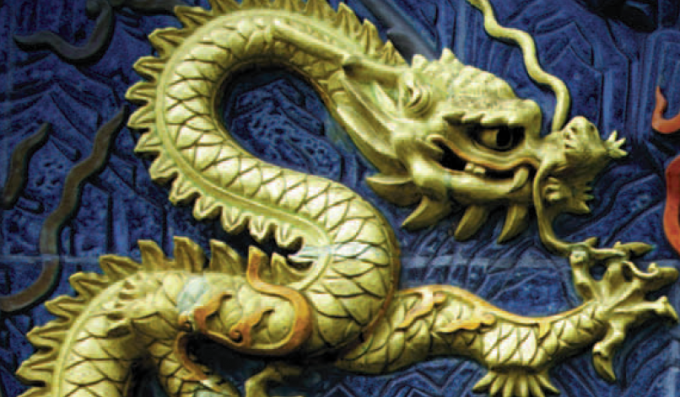Asia Dragon (DGN) reported annual results to 31 August 2020. The trust, previously known as Edinburgh Dragon, delivered an NAV increase of 4.7% and a market return of 4% (both on a total return basis). DGN’s benchmark, the MSCI Asia ex Japan index, fared better, returning 10.9%.
DGN’s manager said that much of the stock market exuberance was fuelled by excessive liquidity and that the portfolio, with its holdings selected carefully for their quality and defensive traits, tends to lag in such sentiment-driven markets.
Exposure to India and Singapore hits
The following summary is provided by DGN’s chairman, James Will: “In the first six months, stocks seemed tethered to the vagaries of US-China relations. As the world’s two largest economies approached a trade deal near the end of 2019, markets jumped. The rally, however, was short-lived as the spread of COVID-19 from China to the rest of the world triggered a historic sell-off in March.
The COVID-19 lockdowns and the impact upon consumer spending, travel tourism and many other industries have been widely reported. This triggered a slump in the oil price, along with a collapse in talks between Saudi Arabia and Russia as well as recession fears. Companies began to withdraw their earnings forecasts and cut dividends. Faced with severe economic pain, central banks and governments unleashed unprecedented monetary and fiscal support. This supported sentiment and stocks recovered. While COVID-19 infection rates stabilised, allowing a gradual re-opening in some countries, this re-opening has not been universal and business activity has languished. In certain sectors, such as travel and hospitality, job losses have increased and some companies have struggled to stay afloat.
The impact of the pandemic was uneven. On one level, it depended on the efficiency of policymakers. For example, China and Taiwan dealt with the virus deftly and were able to re-focus quickly on reviving their economies. However, India and Indonesia are still grappling with high COVID-19 infection rates at the time of writing. On another level, the more trade-dependent economies, including Singapore, faced the brunt of weak external demand. As a result, the trust’s higher exposure to India and Singapore hurt performance.
Meanwhile, Hong Kong was caught in the worsening political crossfire between Washington and Beijing. After China passed a national security law for Hong Kong, the US revoked the former British colony’s special economic status. This created economic uncertainty and cast a pall over the stockmarket. While the Trust divested some holdings, such as Standard Chartered, during the period, this was due to the waning outlook of those individual stocks. The manager continues to be selective in investing in good quality companies in the Hong Kong market.
Amid the gloom, a silver lining emerged. The sharp drop in share prices, especially in February and March, gave the manager the opportunity to buy into attractive stocks that were previously too expensive. These companies were a mix of both old and new economy with businesses tied to long-term trends, such as rising consumption, technological innovation and clean energy. The manager also views such companies as being in sectors that should benefit from structural changes arising from COVID-19, such as working from home arrangements. Pleasingly, some of these new holdings have started to boost the portfolio’s returns. These include Taiwan-listed integrated-circuit maker Silergy, Chinese “super app” Meituan Dianping and fabric manufacturer Shenzhou International. Conversely, the manager sold some lenders which were hindered by the low interest-rate environment, such as Public Bank and Bank Rakyat Indonesia. Holdings which faced increasing pressure from deteriorating US-China tensions were also sold, such as Hangzhou Hikvision and Sunny Optical.
As a result, the portfolio’s overall make-up has changed. The manager is investing more in Taiwan, South Korea and China, markets with better growth prospects while reducing exposure to Singapore and India. In particular, the large market swings in February and March resulted in indiscriminate selling, providing the manager with opportunities to acquire good quality stocks at attractive valuations.”
‘Asia’s appeal remains undimmed’
In his outlook statement, James adds: “After about six months, the world is starting to adjust to a new normal. As we learn more about COVID-19, expectations as to what governments need to do are more clear. We are also seeing progress in developing potential vaccines and treatments. We would expect monetary and fiscal support to continue until economies show concrete signs of getting back on track. This should support stock prices in the short to medium term. However, US-China tensions remain a key concern, with more noise expected ahead of the US presidential elections in November. In Hong Kong, while social unrest and the pandemic unnerved investors, the market is being bolstered by returning US-listed Chinese companies amid the intensifying glare of regulatory scrutiny. Elsewhere, the worsening relations between China and India also bears monitoring.
All things considered, I believe Asia’s appeal remains undimmed. It is home to many good quality companies, with clear earnings streams, robust balance sheets and healthy cash levels. The region remains the fastest-growing in the world, with structural trends that will play out in the years to come.”
DGN: Asia Dragon held back by defensive holdings and exposure to India and Singapore
